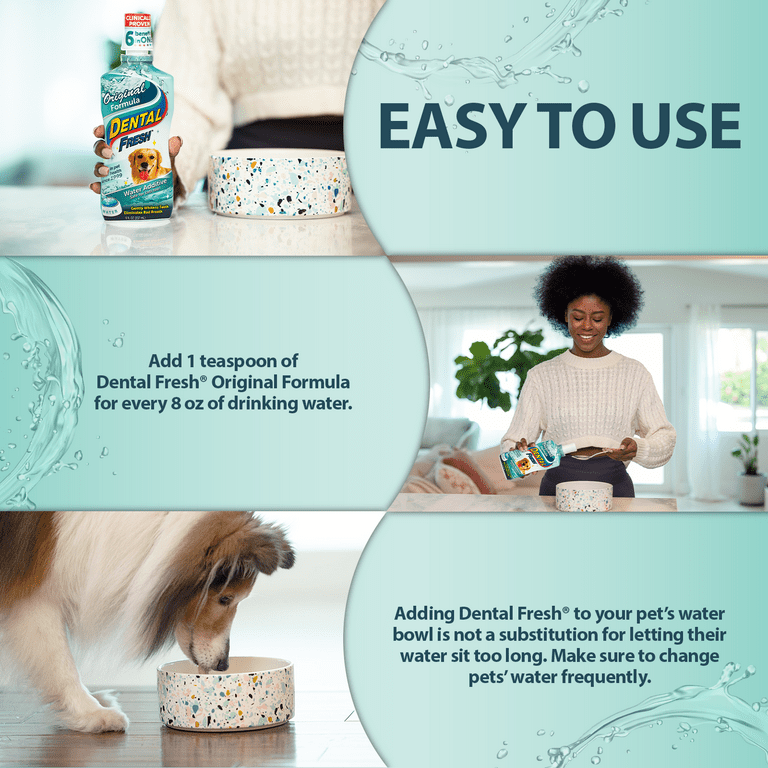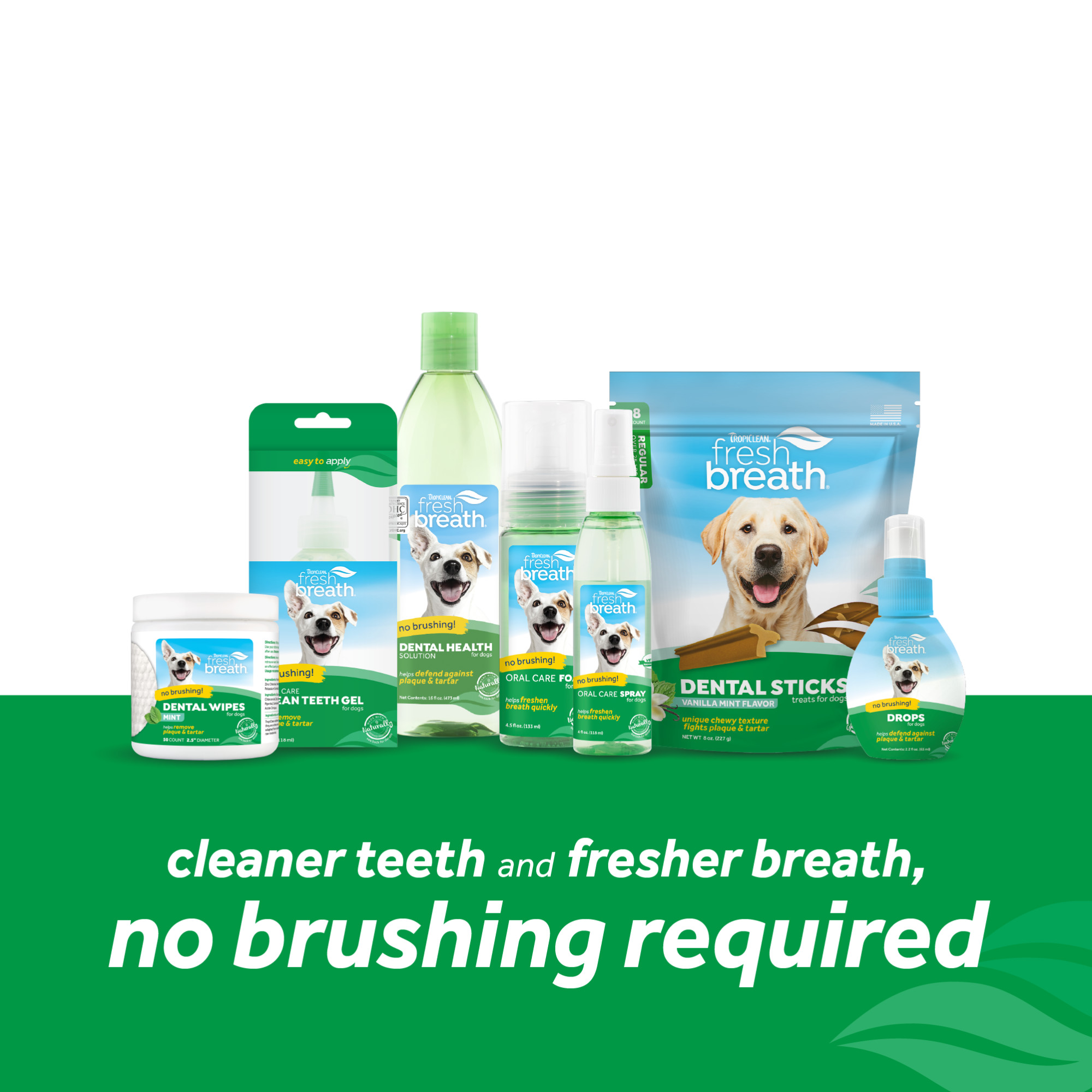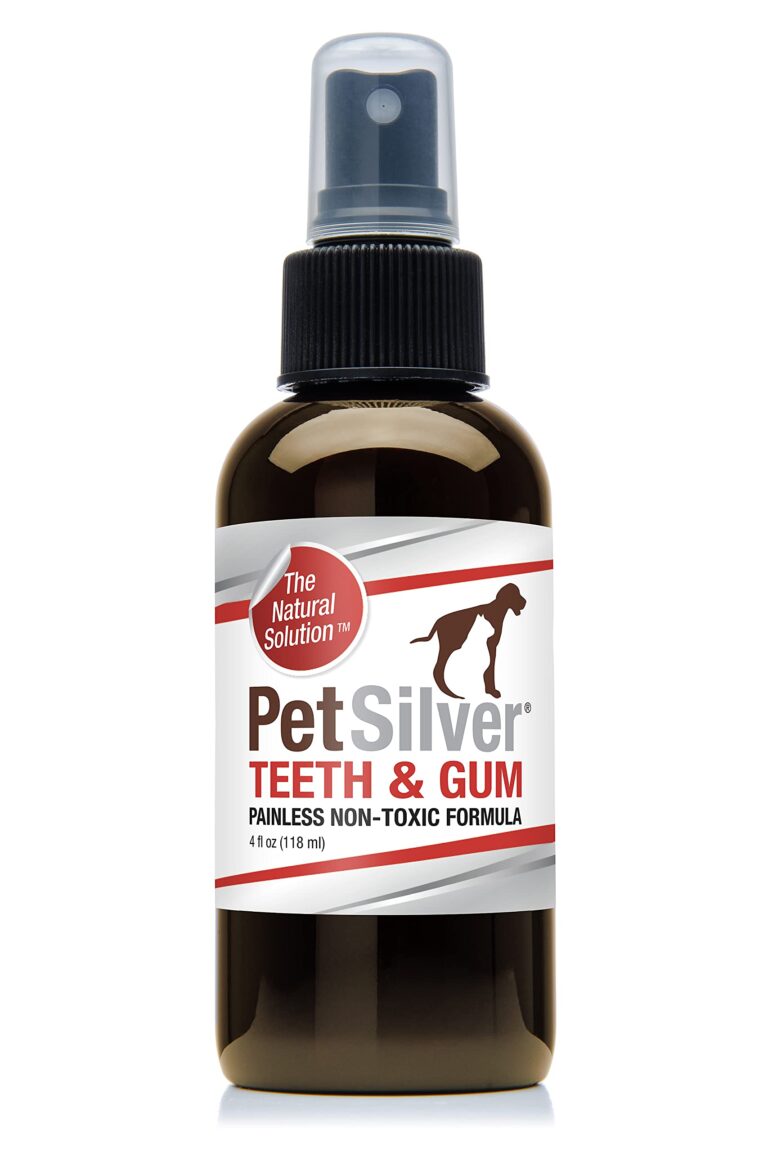To address bad breath in dogs, start by establishing a routine of regular at-home brushing and professional cleanings twice a year. This helps maintain fresh breath, clean teeth, and prevents the buildup of bad bacteria.
Additionally, allowing a veterinary professional to examine your dog’s mouth can help detect dental disease and other health issues early on. In some cases, routine cleanings and dental extractions may be necessary to prevent excessive tartar formation. There are also specific dog treats available that can help combat bad breath, such as Greenies Regular Dental Dog Treats and OraVet Hygiene Dental Chews.
Causes Of Bad Breath In Dogs
If your dog has bad breath, there are several things you can do to help freshen their breath. Start by maintaining a routine of regular at-home brushing and professional cleanings. This will ensure their mouth stays clean, fresh, and free from bad bacteria.
Additionally, routine dental exams by a veterinarian can detect dental disease and other health issues early on.
Dental Disease
Dental disease is one of the major causes of bad breath in dogs. Just like humans, dogs can develop various dental issues such as gum disease, tooth decay, and periodontal disease. These conditions can lead to the buildup of plaque and tartar on your dog’s teeth and along the gumline. The bacteria present in plaque can produce foul-smelling gases, which result in bad breath for your furry friend.Poor Oral Hygiene
The lack of proper oral care and hygiene can also contribute to bad breath in dogs. If you neglect to brush your dog’s teeth regularly, plaque and tartar can accumulate, leading to an unpleasant odor. Additionally, a lack of regular dental check-ups and cleanings can exacerbate the problem by allowing dental issues to worsen.Diet And Digestion
A dog’s diet and digestive system can also affect their breath. Certain foods, especially those with a strong odor, can leave a lasting smell in your dog’s mouth. In addition, if your dog experiences digestive issues such as constipation or gastrointestinal problems, it can result in bad breath. These issues can lead to an imbalance of gut bacteria or the production of foul-smelling gases during digestion, contributing to your dog’s bad breath.To tackle your dog’s bad breath, it is important to address these underlying causes. Regular dental care, including brushing your dog’s teeth and providing dental treats or toys, can help prevent dental disease and improve their breath. Ensuring a balanced diet and addressing any digestive issues can also help freshen your dog’s breath. However, if your dog’s bad breath persists or worsens despite these efforts, it is important to consult with your veterinarian to rule out any underlying health concerns.
Credit: www.amazon.com
Solutions For Bad Breath In Dogs
Dog breath can be a major problem for pet owners. To combat it, establish a routine of regular at-home brushing, and consider professional cleanings twice a year to keep your pet’s mouth fresh, clean, and free of bacteria. Regular veterinary check-ups can help catch dental issues and prevent further complications.
Bad breath in dogs can be a cause for concern and can make spending quality time with your furry friend a less than pleasant experience. However, there are several solutions available to help combat this issue and ensure that your dog’s breath stays fresh and odor-free. From at-home remedies to professional veterinary care and dog dental products, here are some options to consider:
At-home Remedies
When it comes to tackling bad breath in dogs, there are a few simple at-home remedies that you can try. These remedies are easy to implement and can yield positive results:
- Regular brushing: Brushing your dog’s teeth with a dog-friendly toothbrush and toothpaste can help remove plaque and tartar buildup, which is often the cause of bad breath.
- Healthy diet: Feeding your dog a balanced diet that is rich in nutrients can contribute to overall dental health and help combat bad breath.
- Chew toys and treats: Providing your dog with appropriate chew toys and treats can promote healthy teeth and gums while helping to remove plaque and freshening their breath.
Professional Veterinary Care
If your dog’s bad breath persists despite at-home remedies, it may be time to seek professional veterinary care. A veterinarian can perform a thorough dental examination, clean your dog’s teeth, and address any underlying dental issues that may be contributing to the bad breath.
During a dental cleaning, your veterinarian will remove any plaque and tartar buildup and may also recommend dental X-rays to check for any hidden problems. Professional dental care can help improve your dog’s oral health and eliminate bad breath.
Dog Dental Products
In addition to at-home remedies and professional care, there are various dog dental products available that can aid in freshening your dog’s breath. These products are designed to target specific dental issues and can be incorporated into your dog’s oral care routine:
- Dental chews and treats: There are a wide range of dental chews and treats available that can help reduce plaque and tartar buildup, freshen breath, and promote good oral hygiene.
- Mouthwashes and sprays: Dog-specific mouthwashes and sprays can be used as an additional step in your dog’s dental care routine to combat bad breath and promote oral health.
- Toothpaste and dental brushes: Dog-friendly toothpaste and specialized dental brushes can be used to brush your dog’s teeth regularly, removing plaque and freshening breath.
Overall, addressing bad breath in dogs involves a combination of at-home remedies, professional veterinary care, and the use of dog dental products. By implementing these solutions, you can help keep your dog’s breath fresh and their oral health in check.
Preventative Measures For Fresh Dog Breath
To prevent a dog’s bad breath, it is recommended to establish a routine of regular at-home brushing and professional cleanings twice a year. This helps ensure that the pet’s mouth stays fresh, clean, and free from harmful bacteria.
Regular brushing and dental cleaningsOne of the most effective ways to prevent bad breath in dogs is by maintaining a regular brushing routine. Brushing your dog’s teeth at least 2-3 times a week can help remove plaque and tartar buildup, which are common causes of foul breath. Make sure to use a dog-specific toothbrush and toothpaste, as human products can be harmful to pets.In addition to brushing, scheduling regular dental cleanings with a professional veterinarian is crucial for your dog’s oral health. These cleanings not only remove stubborn plaque and tartar but also allow the vet to identify any underlying dental issues that may be causing bad breath. Aim to visit the vet at least twice a year for a thorough dental examination and cleaning.Best treats and chews for fresh breathChoosing the right treats and chews for your furry friend can also contribute to fresher breath. Look for dental treats and chews that are specifically designed to promote oral health. These treats usually have ridges or textures that help remove plaque from the teeth while your dog chews on them.Additionally, some treats contain ingredients like mint or parsley, which naturally freshen breath. These ingredients work by neutralizing odors and leaving your dog’s breath smelling minty fresh. Remember to choose treats that are appropriate for your dog’s size and breed to ensure their safety.Apple cider vinegar as a natural remedyAnother natural remedy for bad breath in dogs is apple cider vinegar. This common pantry item has antimicrobial properties that can help combat oral bacteria, which are often responsible for unpleasant odors. To use apple cider vinegar as a breath freshener for your dog, dilute it with water in a 1:1 ratio and add it to their drinking water. It’s important not to use apple cider vinegar directly on your dog’s teeth or gums, as it can be too acidic and cause irritation. Always consult with your vet before introducing any new remedies or ingredients to your dog’s diet.By implementing these preventative measures, you can help keep your furry friend’s breath fresh and their oral health in check. Regular brushing and dental cleanings, along with the right treats and chews, and the occasional use of apple cider vinegar, can make a significant difference in your dog’s breath. Remember, a little extra care goes a long way in enhancing your pet’s overall well-being and happiness.
Credit: www.walmart.com

Credit: www.tropiclean.com
Frequently Asked Questions Of What To Do For A Dog With Bad Breath
How Do You Get Rid Of Dog Smelly Breath?
To get rid of dog smelly breath, start a routine of regular at-home brushing and schedule professional cleanings twice a year. This helps maintain a fresh, clean mouth and prevents bad bacteria buildup. Additionally, allowing a vet to routinely examine your dog’s mouth can help detect dental disease and other health issues early on.
You can also consider using dental treats like Greenies, OraVet Hygiene Dental Chews, or Zesty Paws All-in-One FUNctional Dental Bones to help freshen your dog’s breath.
What Can A Vet Do For Dogs Bad Breath?
A vet can detect dental disease and other health issues, prevent tartar formation, and recommend dental cleanings and extractions for dogs with bad breath. Routine check-ups are important.
What Is A Good Dog Treat For Bad Breath?
A good dog treat for bad breath can be Greenies Regular Dental Dog Treats, OraVet Hygiene Dental Chews, or Zesty Paws All-in-One FUNctional Dental Bones.
Does Apple Cider Vinegar Help Dogs Bad Breath?
Apple cider vinegar can help with a dog’s bad breath.
Conclusion
Taking care of your furry friend’s bad breath not only improves their oral health but also enhances their overall well-being. By implementing a routine of regular at-home brushing and scheduling professional cleanings, you can prevent the formation of excessive tartar and bacterial buildup in their mouth.
Additionally, incorporating dental treats such as Greenies Dental Dog Treats or OraVet Hygiene Dental Chews can help freshen their breath. Remember, a healthy mouth equals a happy and odor-free dog!



